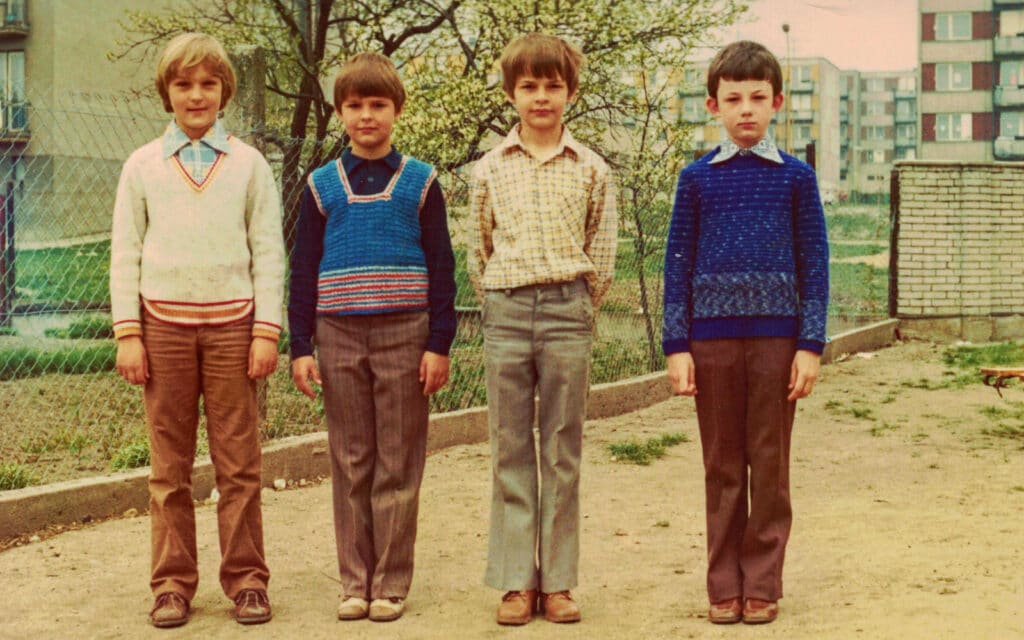Gen Z isn’t waiting for a mental breakdown to start taking care of their minds. To one generation, therapy was something the “troubled” or ultra-rich did. And Gen Z is not so down for that mindset. To them, therapy is as essential as Wi-Fi—because mental health isn’t a privilege, it’s a right.
Gen Z is responsible for normalizing therapy, whether stress, relationships or just surviving in this chaotic world. Here’s why they refuse to treat it as a luxury.
Breaking Generational Chains of Trauma

Gen Z isn’t here to repeat history. They are on a quest to heal the scars that were quietly passed down in their families, even if that means diving headfirst into the emotional trenches. They’ve seen how unprocessed trauma wreaks havoc on relationships, self-esteem, and even physical Health. Through therapy, they learn to unlearn toxic patterns and build a healthier future.
Mental Health> Hustle Culture

Older generations romanticized “grinding” at the expense of their well-being. Gen Z? No chance. They’re choosing therapy to break the toxic cycle of overwork and burnout. Success for them isn’t about how many hours you put in; it’s about that balance, setting boundaries, and keeping your mind in check. No, they are not lazy; they won’t sacrifice their mental Health for a paycheck.
They Grew Up Watching the World Burn (Literally)

Gen Z basically grew up in chaos—from economic recessions to climate anxiety and, quite literally, a real pandemic. Unlike previous generations that bottle up their stress, they’re confronting it head-on—with therapy. They know how to navigate a world in constant crisis, which requires emotional resilience; they are not ashamed to ask for help.
Normalizing a Culture of “It’s Okay Not to Be Okay”

Gen Z ran with that slogan. They’re normalizing mental health struggles like the common cold. Therapy gives them a space to vent, cry, or scream into a metaphorical pillow with no judgment attached. Honestly, we could all take notes.
Seeing Red Flags

Therapy has made Generation Z walking red flag detectors. They can smell emotional manipulation, gaslighting, and toxic vibes from a mile away. No more “but maybe they’ll change” excuses; they’re out here cutting ties and protecting their peace.
Social Media Breeds a Mental Health Minefield

Boomers blame Gen Z for being “glued to their phones,” but let’s be honest – social media is a mental battlefield. The pressure to be perfect, constant comparison, cyberbullying – it’s exhausting. Therapy helps Gen Z process the unrealistic expectations and toxicity of online culture so that they won’t spiral downward into self-doubt every time they scroll through Instagram.
They Know Bottling it Up Doesn’t Work.

Where previous generations were taught to “tough it out” and “deal with it,” Gen Z has witnessed what happens when people bottle up their emotions: breakdowns, resentment, and unresolved issues. They’d rather talk about it now than explode later.
They’re Normalizing Mental Health Like Physical Health

Why would you not go to a therapist if your mind is not okay, while you do go to the doctor when you are sick? For Gen Z, the stigma is gone that therapy is an extra, an add-on, which one could say was optional. For them, it is like going to the gym: it keeps your brain strong and does not make you “weak.”
They Want to Be Better Parents Someday

Gen Z is thinking ahead: They don’t want to pass on the same emotional pain to their children later in life. That’s why going to therapy now teaches them emotional regulation, healthy communication, and self-awareness that will make them better partners, parents, and people.
Relationships? They Want to Get It Right

Gen Z isn’t about toxic relationships or making the same mistakes over and over that other generations made. They also know therapy will help with emotional intelligence, setting boundaries, and even attachment styles. They will invest in therapy before it all falls apart, not after some messy breakup or significant family fallout.
They Grew Up Watching People Struggle in Silence

Growing up, Generation Z watched their parents, teachers, and even celebrities suffer in silence. They saw what not prioritizing their mental Health did to people, and they opted for a different path. The point of therapy is not just to fix problems but also to prevent them.
They Focus on Personal Growth, Not Just Survival

Previous generations went to therapy when things got really bad. Gen Z? They go even when life is “fine” because they know growth doesn’t just happen. Therapy helps them understand themselves, work through fears, and level up emotionally.
They Know Healing Isn’t Just for the Wealthy

Therapy was once an indulgence of the wealthy. Generation Z is fighting for accessibility through online therapy, affordable mental health resources, or workplace benefits. They believe mental health care is a right for all people, not just those with deep pockets.
They Understand That Trauma Doesn’t Just “Go Away”

You can’t just “move on” from trauma by ignoring it. Gen Z knows trauma – whether big or small – leaves long-lasting effects, and therapy helps them process experiences, rewire thought patterns, and move forward in a healthy way rather than letting past pain dictate their future.
They Refuse to Apologize for Putting Themselves First

For far too long, people have been guilt-tripped into thinking that taking care of oneself is bad. Gen Z is done with feeling that way. In fact, therapy is an essential part of self-care and self-love for them. And they do know that being mentally strong isn’t selfish; rather, it’s necessary.
Showing the Next Gen How It’s Done

By putting therapy first, Gen Z is setting the bar for future generations. They’re paving the way for Gen Alpha to grow up in a world where going to therapy is as normal as hitting the gym. Proudly prioritizing their emotional well-being, they make sure the next generation sees mental health care as a basic need – not a luxury. The legacy? A future where self-awareness and healing are simply part of the human experience. Talk about trendsetting!
Why Is Gen X the Forgotten Generation That Changed the World

As we navigate the complexities of the modern age, discussions often revolve around Millennials, Boomers, and Generation Z, leaving little room for the consideration of Generation X. Often dubbed the “overlooked generation,” Gen Xers have played a substantial role in shaping the contemporary world.
Why Is Gen X the Forgotten Generation That Changed the World
Children Who Struggle with Friendships May Have These Unique Strengths

Not every child is a social butterfly, and that’s perfectly okay! While some kids find it hard to make or maintain friendships, they often shine in other ways. Let’s explore 12 incredible qualities these children usually possess!
Children Who Struggle with Friendships May Have These Unique Strengths

